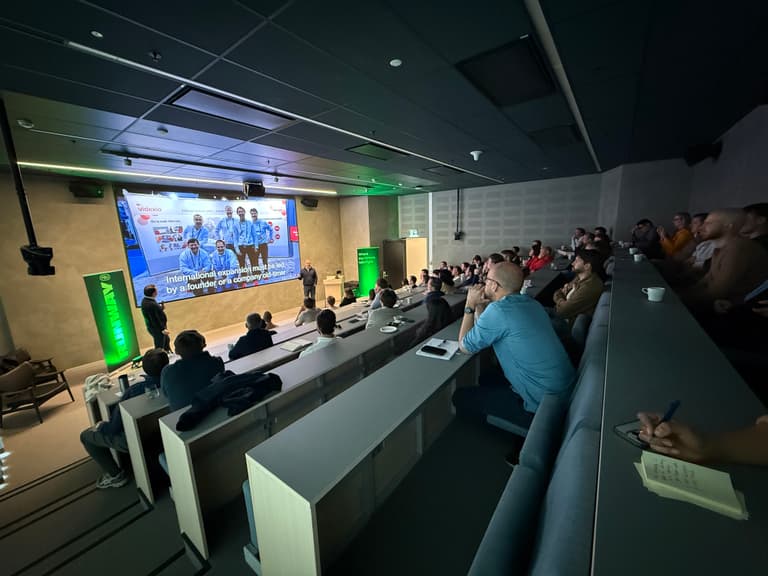Michel Sagen and Tom-Erik Lia, co-founders of the pioneering video conferencing company Pexip, delivered an unflinching and deeply insightful talk on their evolution from product-obsessed engineers to IPO veterans and now hands-on investors through Protonic Partners. Their presentation, rich with war stories and lessons, wasn’t just a founder’s journey—it was a roadmap for navigating the rocky terrain of early-stage startups and high-growth scaling.
A Journey That Started in a Boathouse
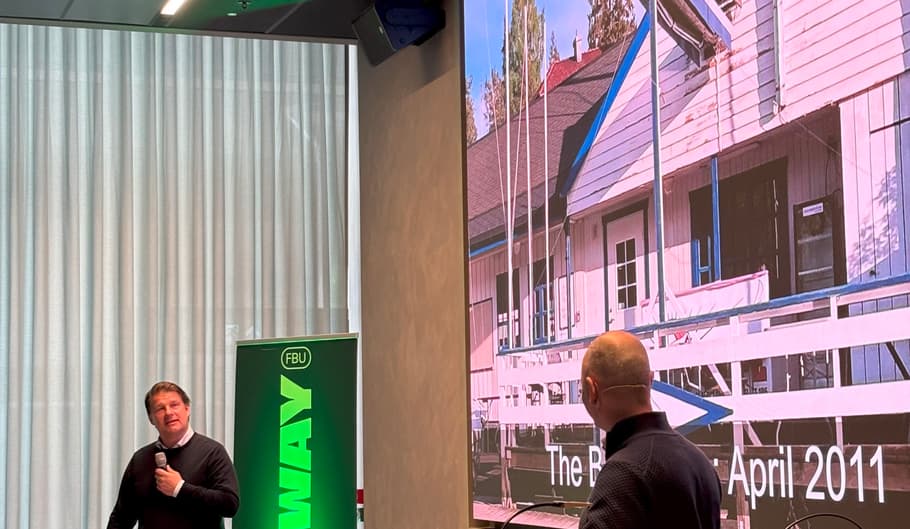
Their tale begins in the post-Tandberg landscape, after Cisco's 2010 acquisition of the Norwegian video communications giant. As that chapter closed, a burst of entrepreneurial energy created what they call the “video valley” around Oslo. Out of this fertile ground emerged their own startup: a cloud-native video conferencing service, Videxio, launched from a literal boathouse in 2011.
They were early, lean, and laser-focused. With just five people and a server running out of a basement, they closed their first customer—Telenor—before raising any real funding. After enduring 99 investor rejections, they landed one "yes" that helped catalyze their explosive growth.
Scaling With Purpose—and Pain
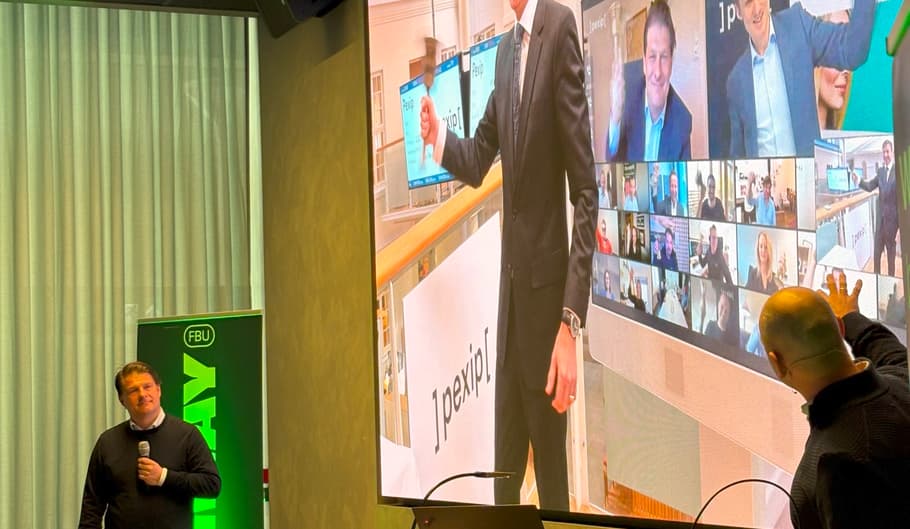
The company scaled globally within four years, reaching over 2,500 customers across 50 countries. Their go-to-market strategy relied heavily on partner distribution, and they were proudly cash-positive before raising significant capital. But scale brought its own challenges.
A 2018 merger created what is today known as Pexip, culminating in a successful $240M IPO in May 2020—done entirely virtually during the COVID-19 lockdown. The IPO was oversubscribed 20x and hailed as the largest Nordic tech listing in decades. But as with many pandemic-era tech darlings, the post-IPO reality proved brutal: stalled growth, ballooning costs, and a sharp decline in share price.
Yet the company eventually stabilized. Today, Pexip is profitable, leaner, and even issuing dividends—a testament to hard-earned resilience.
Enter Protonic Partners: Founders Backing Founders
In 2023, Michel and Tom-Erik co-founded Protonic Partners, an investment and advisory firm built on the philosophy that only those who’ve walked the founder’s path can truly guide others through it. Protonic is not a fund, but a “venture craftsman” model: the capital is their own, and they’ve already backed 16 companies across B2B SaaS, deep tech, and climate tech, including notable exits like Nova Render.
They don’t just write checks—they write playbooks.
The Protonic Principles: Hard-Earned, No-Nonsense Lessons
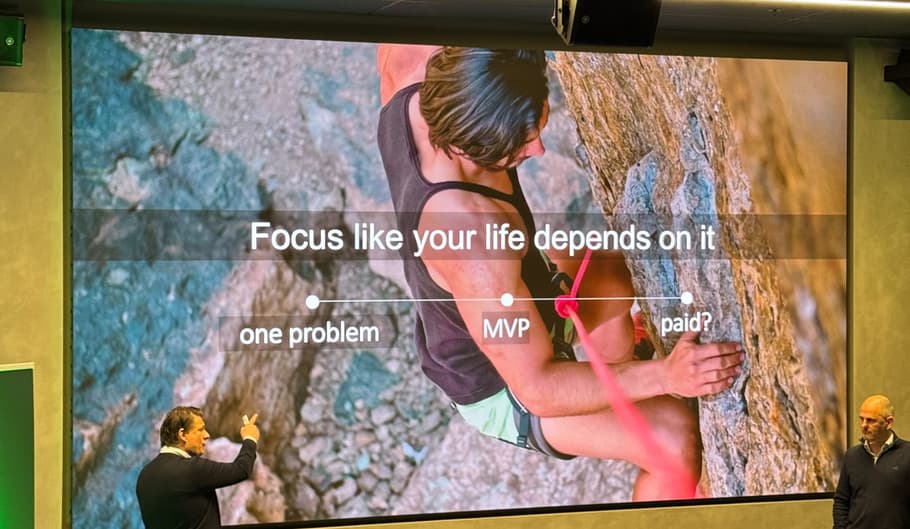
1. Start Lean, Stay Lean
A founding team of 2–3 with complementary skill sets is ideal. Avoid overstaffing early; two good engineers can accomplish more than a bloated dev team if they’re sharply focused.
2. MVP Means “Something People Will Pay For”
Your first product must solve one specific, painful problem well. Until a customer pays, your product doesn’t exist. Understanding the market through real feedback—not internal brainstorming—should shape your roadmap.
3. Sales is Your Best Feedback Loop
Selling isn’t just about revenue—it’s about learning. Early sales efforts will reveal whether your value proposition, pricing, and distribution model hold water. Start before you’re ready to ship products.
4. Don’t Scale Prematurely
If the product and business model don’t work in a small sample, scaling will just multiply your losses. Growth is only beneficial once you’ve proven unit economics and go-to-market mechanics where you can provide repeatable sales cycles with the same product.
5. People Decisions: Hire Slowly, Fire Fast
The first 10 hires set your culture and standard. A-players attract A-players. If someone isn’t working out, cut early—it’s healthier for the team and faster for your company’s trajectory.
6. Culture Is a Scaling Tool
As complexity increases, culture must be codified. Their playbook includes maxims like “Progress over perfection” and “Act like an owner.” Everyone, ideally, should have skin in the game.
7. Founders Must Be Present in New Markets
Expanding into a new geography? Founders or company old-timers need to be on the ground for at least 6 months. Delegating too early often backfires.
8. Decide Fast—But Know What’s Reversible
Not all decisions deserve the same process. Reserve time for the irreversible ones; everything else should be decided quickly to maintain momentum.
9. Frequent, Honest Communication
As you scale past 20–30 people, informal communication breaks down. Weekly all-hands and over-communication are essential to maintain alignment, trust and morale.
10. It Takes 10 Years to Build an Overnight Success
There are no shortcuts. There will be self-doubt, sleepless nights, and painful decisions. Surround yourself with people who will go to battle with you—not just in the good times.
Looking Ahead: More Than Just Capital
Protonic Partners isn’t looking to build a traditional fund. Instead, they’re open to incubating companies earlier and creating aligned investment structures. Their mission remains clear: help ambitious founders solve real problems—faster, smarter, and with fewer mistakes.
Final Word
If the tech world is a minefield, Michel and Tom-Erik have walked through it, stepped on a few, and lived to tell the tale. Their talk wasn’t motivational fluff—it was a masterclass in disciplined company-building, candid self-reflection, and founder-first investing. The startup world could use more of both.
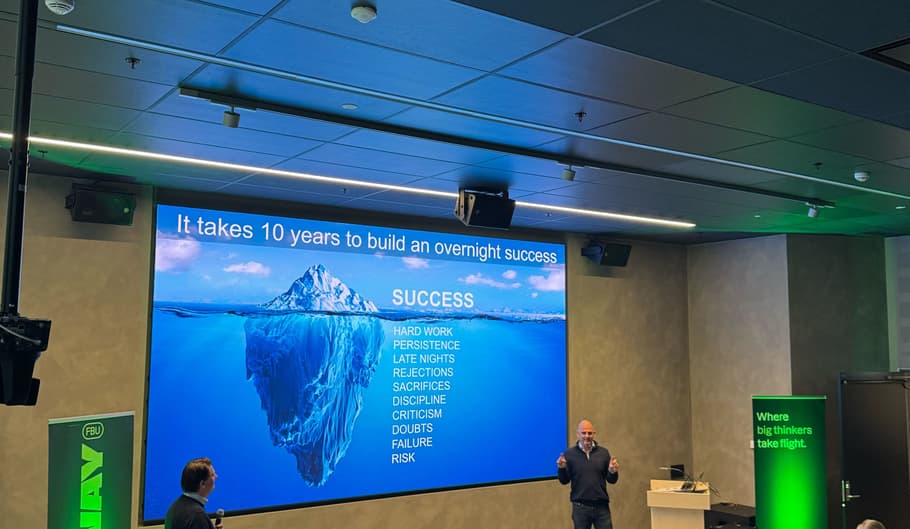
Every last Tuesday of each month, RunwayFBU hosts these insightful Takeoff Tuesday sessions with the goal of empowering founders and leaders with the knowledge and perspectives needed to build better companies and navigate the complexities of their journeys. This month's discussion, featuring the contrasting yet complementary experiences of a neuroscience expert and a resilient business leader and extreme athlete, offered valuable lessons on understanding our own capacity for growth, strategically engaging with challenges, and prioritizing both mental and physiological well-being for sustained success. These sessions serve as a vital platform for the RunwayFBU community to learn from diverse experiences and cutting-edge insights, fostering a culture of continuous development and resilience within the startup ecosystem.
Join the next Takeoff Tuesday at RunwayFBU, and our other events by visiting lu.ma/RunwayFBU
